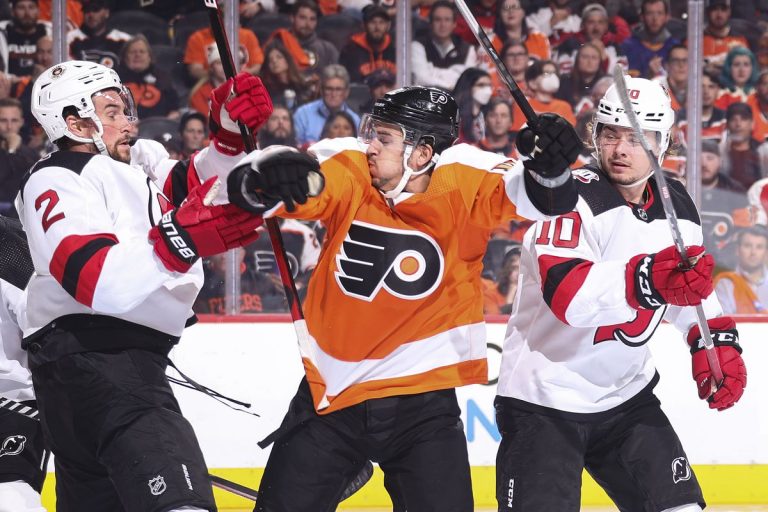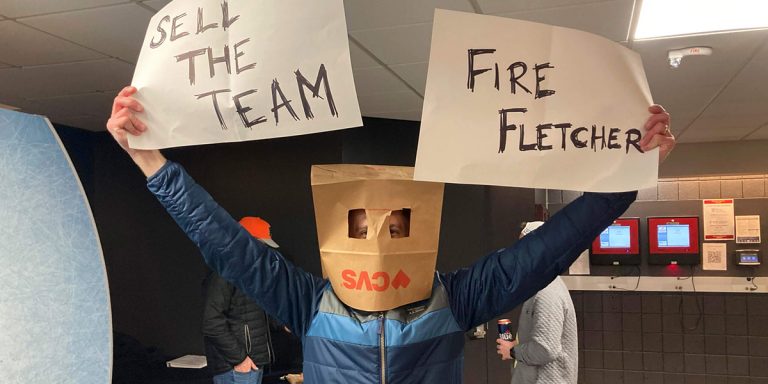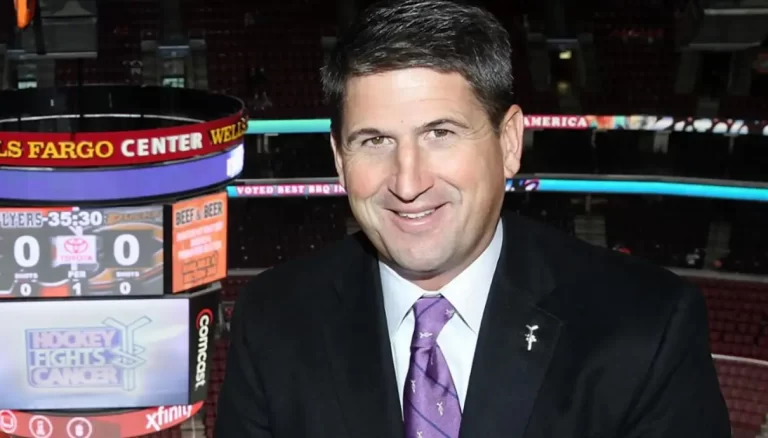How Bad Are The Flyers? Not As Bad As Expected

So, really How Bad Are The Flyers? Honestly and surprisingly, The Philadelphia Flyers are not as bas we thought they would be.
In the realm of sports, the concept of “rebuilding” frequently arises, particularly when discussing teams that have been underperforming or missing playoff opportunities for a considerable period. Commonly, this term is associated with the strategy of trading established players and intentionally losing games to improve draft pick positions. However, the true essence of a rebuild encompasses more than this narrow view.
This season, the Philadelphia Flyers openly declared their intention to rebuild. Contrary to expectations, 16 games into the season, the Flyers find themselves in a playoff position, stirring up mixed reactions among fans. Some supporters express concern over the team’s unexpected success, fearing it might undermine their rebuilding process. Additionally, there are reservations about coach John Tortorella’s decisions to bench certain players, sparking debates about his approach to team development.
How bad are the Flyers?
Despite criticisms, the Flyers are showing promising signs. They’re not just holding their own in terms of their win-loss record; they also lead the NHL in 5v5 goals, and their overall performance metrics are solid. If not for a struggling power play, they could be ranked among the top teams in the league. The team’s success is attributed to their diligent work ethic, effective line chemistry, and players like Travis Sanheim and Sean Walker delivering exceptional performances. Their commitment to doing the small things right, like blocking shots and maintaining an aggressive forecheck, reflects the influence of their head coach.
The debate around Tortorella’s strategy, particularly his handling of young players, is another point of contention. A key aspect of rebuilding is the development of young talent, but this doesn’t necessarily mean handing roster spots to young players without merit. The Flyers’ approach emphasizes the value of earning one’s place, a lesson that extends beyond the immediate experience of playing a regular-season game. But don’t be fooled, these are not your parent’s Broad Street Bullies of old.
Concerns have also been raised about specific player decisions, like the extended benching of Morgan Frost and the management of rookie Bobby Brink. However, in Frost’s case, his absence coincided with a winning streak for the Flyers, and altering a successful team dynamic for one player doesn’t align with Tortorella’s philosophy. As for Brink, careful management of his playtime is crucial for his long-term development and adaptation to the NHL’s rigorous schedule.
Regarding the team’s potential playoff prospects, some question the value of making the playoffs if it only leads to an early exit. However, the benefits of playoff experience for a young team, the opportunity to play meaningful games late in the season, and the unpredictable nature of the playoffs are significant factors. This experience can be invaluable for young players and can also serve as an incentive for prospects like Cutter Gauthier to join the team.
The necessity of high draft picks for a successful rebuild is another topic of debate. Looking at examples from other teams like the Boston Bruins, Buffalo Sabres, and Toronto Maple Leafs reveals that a successful rebuild doesn’t solely depend on securing top draft picks. Each team’s experience shows different outcomes and challenges associated with their rebuilding strategies.
Under John Tortorella’s leadership, the Flyers are navigating their rebuild with a focus on changing the team culture and instilling a competitive spirit. While his methods may be controversial, they align with a broader vision of transforming the Flyers into a respected and competitive force in the NHL. So, how bad are the Flyers? Surprisingly, not as bad as we thought…let’s see where this takes us this season.










